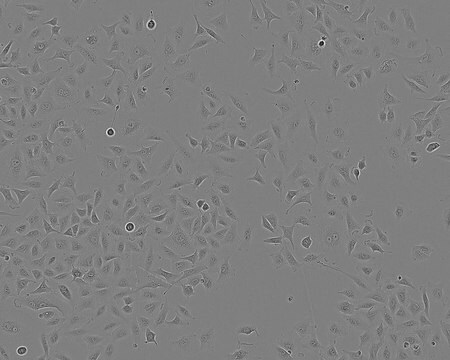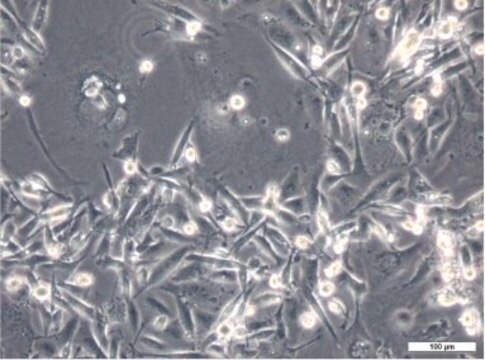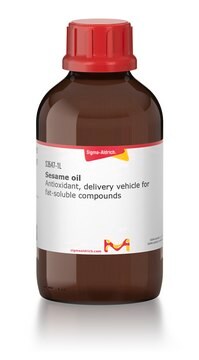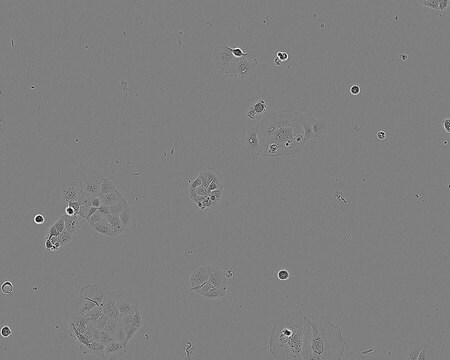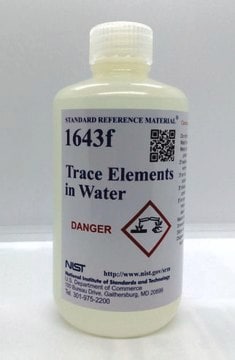推荐产品
产品名称
MCF-7/S0.5 Human Breast Cancer Cell Line, MCF-7/S0.5 is a tamoxifen-sensitive cell line established from the MCF-7 human breast cancer cell line by adaption to growth in low serum conditions.
生物源
human
品質等級
技術
cell culture | mammalian: suitable
運輸包裝
ambient
一般說明
Estrogen receptor-positive breast cancer is the most common type of breast cancer. About 80% of all breast cancers express the estrogen receptor (ER+) and depend on estrogen to support the growth and spread of the cancer cells. Hormonal therapy, such as tamoxifen, may help slow or stop the growth of ER+ breast cancers by blocking the actions of estrogen. Primary or acquired tamoxifen resistance poses a major clinical challenge in the treatment of ER+ breast cancer. The MCF-7/S0.5 is the parental line from which many tamoxifen-resistant cell lines have been derived and is utilized as a parental control to its derivative cell lines in parallel experiments.
The presence of hormones in the serum required in tissue culture media complicates the demonstration of specific hormone and antihormone effects. The MCF-7/S0.5 human breast cancer cells have been adapted to long-term growth in low serum concentration (0.5% fetal bovine serum) by a stepwise reduction of the medium serum content from 5% to 0.5% FBS. MCF-7/S0.5 cells express both estrogen and progesterone receptors and are sensitive to tamoxifen.
The presence of hormones in the serum required in tissue culture media complicates the demonstration of specific hormone and antihormone effects. The MCF-7/S0.5 human breast cancer cells have been adapted to long-term growth in low serum concentration (0.5% fetal bovine serum) by a stepwise reduction of the medium serum content from 5% to 0.5% FBS. MCF-7/S0.5 cells express both estrogen and progesterone receptors and are sensitive to tamoxifen.
細胞系描述
Cancer Cells
應用
This product is intended for sale and sold solely to academic institutions for internal academic research use per the terms of the “Academic Use Agreement” as detailed in the product documentation. For information regarding any other use, please contact licensing@emdmillipore.com.
品質
• Each vial contains ≥ 1X106 viable cells.
• Cells are tested by PCR and are negative for HPV-16, HPV-18, Hepatitis A, B, C and HIV-1 & 2 viruses.
• Cells are negative for mycoplasma contamination.
• Each lot of cells are genotyped by STR analysis to verify the unique identity of the cell line.
• Cells are tested by PCR and are negative for HPV-16, HPV-18, Hepatitis A, B, C and HIV-1 & 2 viruses.
• Cells are negative for mycoplasma contamination.
• Each lot of cells are genotyped by STR analysis to verify the unique identity of the cell line.
儲存和穩定性
MCF-7/S0.5 cells should be stored in liquid nitrogen. The cells can be cultured for at least 10 passages after initial thawing without significantly affecting the cell marker expression and functionality.
其他說明
Concentration: Please refer to lot specific datasheet.
免責聲明
Unless otherwise stated in our catalog or other company documentation accompanying the product(s), our products are intended for research use only and are not to be used for any other purpose, which includes but is not limited to, unauthorized commercial uses, in vitro diagnostic uses, ex vivo or in vivo therapeutic uses or any type of consumption or application to humans or animals.
RESEARCH USE ONLY. This product is regulated in France when intended to be used for scientific purposes, including for import and export activities (Article L 1211-1 paragraph 2 of the Public Health Code). The purchaser (i.e. enduser) is required to obtain an import authorization from the France Ministry of Research referred in the Article L1245-5-1 II. of Public Health Code. By ordering this product, you are confirming that you have obtained the proper import authorization.
儲存類別代碼
10 - Combustible liquids
水污染物質分類(WGK)
WGK 1
閃點(°F)
188.6 °F - closed cup - (Dimethylsulfoxide)
閃點(°C)
87 °C - closed cup - (Dimethylsulfoxide)
A E Lykkesfeldt et al.
British journal of cancer, 53(1), 29-35 (1986-01-01)
The human breast cancer cell line MCF-7 requires oestrogen to produce and promote growth of tumours in athymic mice. In vitro, however, MCF-7 cells proliferate rapidly without supply of oestrogen (Briand & Lykkesfeldt, 1984). Oestrogen stimulation of proliferation of MCF-7
Melissa A Maczis et al.
Journal of lipid research, 59(12), 2297-2307 (2018-10-14)
In breast cancer, 17β-estradiol (E2) plays critical roles mainly by binding to its canonical receptor, estrogen receptor (ER) α66, and eliciting genomic effects. E2 also triggers rapid, nongenomic responses. E2 activates sphingosine kinase 1 (SphK1), increasing sphingosine-1-phosphate (S1P) that binds
Deepak Parashar et al.
Cell reports, 29(13), 4389-4406 (2019-12-26)
Genomic amplification of 3q26.2 locus leads to the increased expression of microRNA 551b-3p (miR551b-3p) in triple-negative breast cancer (TNBC). Our results demonstrate that miR551b-3p translocates to the nucleus with the aid of importin-8 (IPO8) and activates STAT3 transcription. As a consequence
我们的科学家团队拥有各种研究领域经验,包括生命科学、材料科学、化学合成、色谱、分析及许多其他领域.
联系技术服务部门
